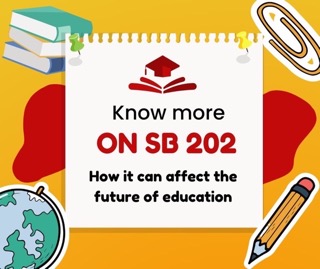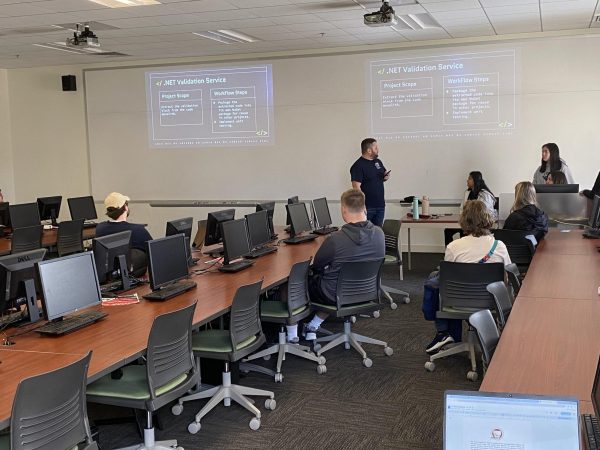Student demands increased Title IX funding
“We’re wanting better funding from the state for prevention and awareness programs for Indiana colleges,” said Katelyn Vinci, junior social work major.
February 18, 2020
Katelyn Vinci wants better resources for survivors of sexual violence statewide and at USI and she’s putting her advocacy into action.
The junior social work major and president of Students for Gender Violence Awareness (SFGVA) is working on a petition to create an office housing Title IX, but have sexual assault advocates separate from the organization so students can receive support without having to make a Title IX report.
“The purpose of a central office is that often students don’t know what Title IX is or where it’s located,” Vinci said.
Vinci said the point of the petition is to gain signatures to prove the need for increased funding for more resources.
“We’re wanting better funding from the state for prevention and awareness programs for Indiana colleges,” Vinci said. “These types of programs range from campus-wide training for students, faculty and staff, to institutional campaigns to raise awareness of the reporting process and the resources available to survivors of sexual violence.”
Vinci said she wanted to start this petition after she became president for SFGVA and realized the organization could do more if there was enough funding.
Thirty-two people have signed Vinci’s petition as of Feb. 18.
Carrie Lynn, civil rights and Title IX coordinator, said it has been good communicating with Vinci.
The Title IX office updates their policies and procedures every year.
“That’s something we’re working on now,” Lynn said.
The team looks over their investigations and what’s worked and what they feel needs improvement.
Currently, they’re converting a conference room in the Forum Building to have softer seating, softer lighting and artwork so it’s more conducive to interviewing trauma survivors.
Lynn said she wants to get the word out that if anyone has a concern or question they can talk to her.
“I want to make sure our campus is safe,” Lynn said. “I can’t do anything if I don’t know about it.”
In December, the office added a full time deputy civil rights and Title IX coordinator, Dameion Doss.
She said there are individuals who are trained to respond to reports in the Public Safety Office, Dean of Students Office, the Health Professions Center and the Counseling Center.
“Sometimes I’ll refer people to the health center if they’ve just been assaulted and they haven’t received any medical care,” Lynn said. “That’s one of my first questions, are you in need of medical care? And if they are, I end our meeting and I take them to the health center.”
There were six criminal offenses of dating violence, two domestic violence and nine stalking cases reported in 2018, according to the 2019 Annual Security and Fire Safety Report.
The Indiana General Assembly is reviewing a bill that would help prevent sexual violence, domestic violence and stalking. Each approved post-secondary educational institution would be required to establish a comprehensive policy concerning the issue.
Universities would also be required to develop a concise notice that is written in “plain language” telling victims their rights and options and informing them who in the institution will receive the report if they chose to make one.
The bill would also have one or more individuals designated to act as confidential advisors to provide emergency and ongoing support to student victims of sexual or domestic violence or stalking. They would also establish a complaint resolution procedure to resolve reports of student violations.
Students and certain employees would also be provided with training and information concerning sexual violence.
U.S. Secretary of Education Betsy Devos proposed Title IX rule to “provide clarity for schools, support for survivors and due process rights for all” in a press release sent out by the U.S. Department of Education in 2018.
“It is our goal with this proposed rule to ensure that Title IX grievance proceedings become more transparent, consistent, and reliable in their processes and outcomes,” DeVos said in the release. “Far too many students have been forced to go to court to ensure their rights are protected because the Department has not set out legally binding rules that hold schools accountable for responding to allegations of sexual harassment in a supportive, fair manner. “
The proposed changes would grant students who are accused of sexual misconduct greater protections, while colleges and universities would be less liable when investigating complaints.
While these are proposed changes, the Title IX and Sex Discrimination guidelines hasn’t been revised since April of 2015.

















